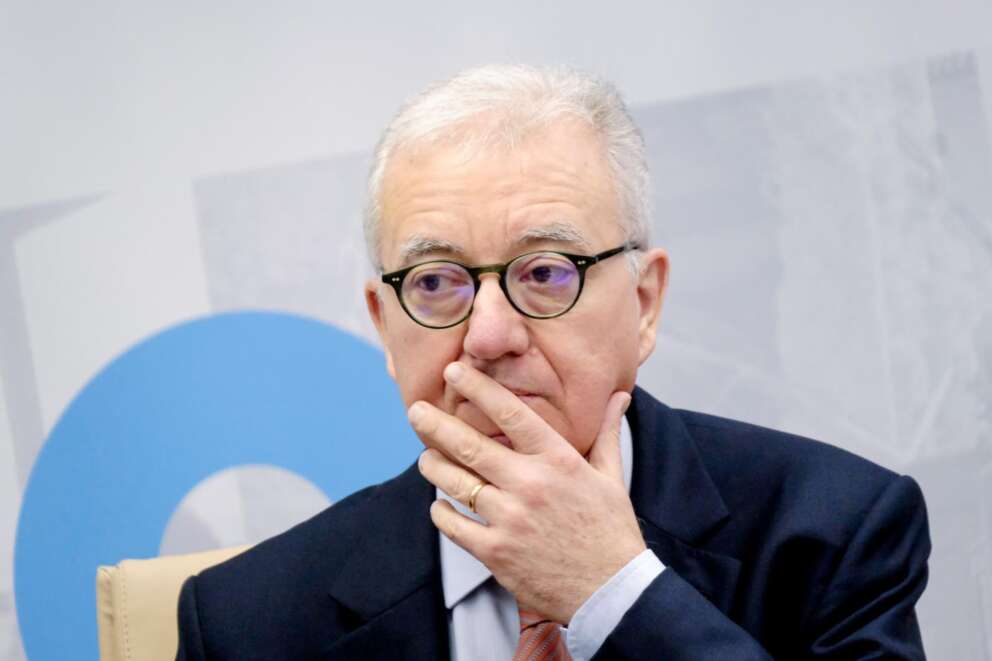The government has no plan on drugs

The call for reform
Mantovano has announced its first National Conference for November, the script is already written: repression and criminalization.

Let's start from here: from the " failure of defeatist policies, summarized in the policy of Harm Reduction " announced in the report on addictions last year by the plenipotentiary of the Meloni Government, Alfredo Mantovano . In this statement there is the political figure of the right's position on drugs: the reversal of reality and the construction of a narrative functional to its own ideological and moralistic approach.
If ever a policy has failed, as demonstrated by the simple observation of the present of our cities, it is the prohibition on drugs . Based on the UN convention of 1961, the penal repressive system of the Consolidated Law on drugs in force in Italy leads to a third of the prison population in prison, but it has been completely incapable of having an effect on the supply and demand of psychotropic substances. At the same time it has produced millions of years of prison and a myriad of social and health damages that only harm reduction policies have been able to stem. If today the overdose deaths in our country do not exceed 300 cases, we owe it to the street units, the drop-ins, the interventions in entertainment contexts introduced in Italy starting from the 90s. Certainly not to the alarms, promptly followed by proclamations, of the Mantuan on duty.
This Mantovano, inspirer of the Fini-Giovanardi law that for 8 years has equated all substances, ending up irremediably uniting their markets, has announced his first National Conference on Drugs for 7 and 8 November 2025. It is enough to remember the government measures of these years, based on repression, criminalization, exclusion to understand how the script is already written. From the anti-rave decree to the Caivano decree, from the reform of the highway code - which, as is now evident also to the Ministries of Health and the Interior, indiscriminately affects consumers, even of cough syrup, regardless of whether one is driving under the influence - up to the ideological zenith of industrial hemp flowers assimilated to narcotic substances. The executive has taken a path that not only ignores scientific evidence, but fuels the stigma and the ideological war against people who use drugs ( PUD ).
Thus, in the preparation of the Conference, these and expert civil society were excluded. A clear change of direction compared to the 2021 Conference, which, despite a thousand limitations, had opened the debate to all voices, leading to the approval of advanced documents and a National Drug Plan resulting from a true participatory process. A plan that the current government has explicitly ignored, nullifying any prospect of reform. To respond to this short-sighted and repressive policy, a vast network of civil society entities for the reform of drug policies has decided to convene a national Counter-Conference, which will be held in Rome at the same time as the government meeting. “ We have a plan on drugs” : the message of the appeal signed by A Buon Diritto, ARCI, Antigone, Associazione Luca Coscioni, CGIL, CNCA, Comunità San Benedetto al porto, Forum Droghe, Gruppo Abele, Itanpud, ITARDD, l'Altro Diritto, LILA, la Società della Ragione, l'Isola di Arran, Meglio Legale, Tutela Pazienti Cannabis is clear.
It is the plan that emerges from decades of practices in the territories, of social and health work, of study, of harm reduction, of mobilization of operators and people who use substances. It is the plan of those who care about rights, health, social justice. It is that plan that makes it clear that the right wing in government does not have it and, repeating mantras and rituals now devoid of meaning, is only able to use criminal law to demonstrate to the country that it is doing something. The promoters want to build a collective path, widespread in the country and open to dialogue with citizens and local administrations, with the youth, students, trade unions, professionals and politicians.
Because “ governing drugs is possible” , but to do so a paradigm shift is needed: moving from a penal and punitive model to a social governance of the phenomenon, based on decriminalization, on the decriminalization of use, on the legal regulation of cannabis, on the implementation of the Essential Levels of Assistance for harm reduction, on a justice system that limits the use of detention and supports alternative community pathways, especially for the most vulnerable people. The appeal is on www.conferenzadroghe.it
*Drug Forum
l'Unità





